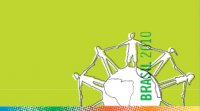Os artigos nesta seção não são traduzidos ainda, você podem lê-los em inglês.
|
Teaching guide
This teaching guide was created in the framework of the Children and Youth International Conference « Let’s Take Care of the Planet » project, launched by the Ministries of Education and Environment of Brazil and is supported by the Charles Léopold Mayer Foundation for Human Progress. In France and in Europe, it is coordinated by the Monde Pluriel organization, in partnership with (...) |
|
|
This sixth report from the Working Group on Climate Change and Development argues that our chances of triumphing over climate change will rise dramatically if we recognise that there we need not one but many models of human development. Read more: www.rinoceros.org |
|
|
The findings from civil society organizations in over 60 countries are included in this Social Watch report, the first global bottom-up report on the social impact of the crisis. [...] The accumulation of findings from rich and poor countries of all continents show remarkable similarities and also a diversity of situations that enriches the picture available so far, makes it even more (...) |
|
|
What is Climate Change? What Can You Do? UNEP and Climate Change |
|
|
An online game (requires flash plugin) where "you are president of the European Nations. You must tackle climate change and stay popular enough with the voters to remain in office". The educational goal is "to give an understanding of some of the causes of climate change, particularly those related to carbon dioxide emissions, to give players an awareness of some of the policy options (...) |
|
|
A music video sponsored by NSF and NASA, portraying climate change in the Arctic and Antarctic and encouraging AIM (Adaptation, Innovation, Mitigation). |
|
|
Animated film about the issue of ocean acidification, produced by Ridgeway School (Plymouth, UK) and Plymouth Marine Laboratory. Funded by the European Project on OCean Acidification (EPOCA). |
|
|
(44 pages booklet) - An introduction to research questions, challenges and methods for CarboSchools projects (http://www.carboschools.org). |
|


